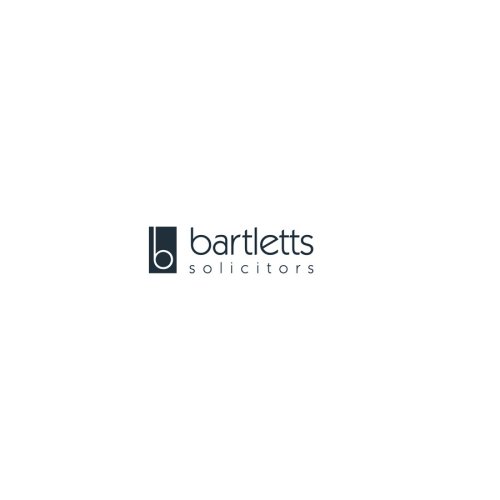Best Conveyancing Lawyers in Liverpool
Share your needs with us, get contacted by law firms.
Free. Takes 2 min.
Free Guide to Hiring a Real Estate Lawyer
List of the best lawyers in Liverpool, United Kingdom
About Conveyancing Law in Liverpool, United Kingdom
Conveyancing is the legal process involved in transferring the ownership of property from one person to another. In Liverpool, as in the rest of England and Wales, conveyancing is a crucial step whether you are buying, selling, or remortgaging property. The process involves a series of legal and administrative tasks to ensure that the transaction is valid, the property has a clear title, and all legal obligations are met. Liverpool's property market is vibrant and competitive, making it important to understand how conveyancing operates locally to avoid delays and unexpected issues.
Why You May Need a Lawyer
Engaging a lawyer or licensed conveyancer is highly recommended for anyone involved in property transactions in Liverpool. Common situations where professional help is essential include:
- Buying or selling residential or commercial property
- Remortgaging an existing property
- Transferring ownership due to inheritance or divorce
- Resolving boundary disputes
- Assisting with leasehold agreements
- Handling shared ownership or Help to Buy schemes
- Uncovering and resolving potential legal issues, such as restrictive covenants, rights of way, or planning permissions
Legal professionals will conduct vital searches, draft contracts, liaise with third parties, and ensure compliance with all legal requirements, offering peace of mind and safeguarding you from future complications.
Local Laws Overview
Conveyancing laws in Liverpool follow the jurisdiction of England and Wales, but there are local considerations that are particularly relevant. Key aspects include:
- Local Authority Searches: Local searches conducted with Liverpool City Council can reveal planning permissions, building regulations, local land charges, and proposed infrastructure that may affect the property.
- Flood Risk: Liverpool's proximity to the River Mersey makes flood risk searches important, especially for properties near the waterfront or in lower-lying areas.
- Historic Land Use: Some areas may be affected by restrictions due to historic land use, including former industrial sites and listed buildings, which may impose additional obligations or restrictions on property owners.
- Leasehold Issues: Many Liverpool properties, particularly flats, are leasehold. Understanding lease terms, ground rent, service charges, and lease extensions is essential for buyers and sellers.
- Stamp Duty Land Tax: The purchase price and property type will affect payment of stamp duty, and your solicitor will calculate these costs for transactions in Liverpool.
Being aware of these local aspects will help streamline the conveyancing process and alert you to any potential complications.
Frequently Asked Questions
What is the typical timeline for conveyancing in Liverpool?
The average conveyancing process in Liverpool takes between 8 and 12 weeks from offer acceptance to completion, though complex matters can delay proceedings.
Can I do conveyancing myself?
While it is possible to handle conveyancing personally, it is not recommended due to legal complexities and the potential for costly mistakes. Most mortgage lenders require a solicitor or licensed conveyancer to act on their behalf.
What searches are carried out during conveyancing?
Standard searches include local authority searches, environmental searches, water and drainage searches, and sometimes flood risk assessments. Your solicitor may suggest additional searches based on the property's location or history.
How much does conveyancing cost in Liverpool?
Costs can vary, but typically range from £800 to £1,500 plus VAT and disbursements such as search and registration fees. The price can increase for leasehold properties or transactions with complex issues.
What is exchange of contracts?
Exchange of contracts is the legal point when the buyer and seller become bound to complete the transaction. After contracts are exchanged, withdrawing can result in financial penalties.
When do I pay the deposit?
The deposit, usually 10 percent of the purchase price, is paid at exchange of contracts. This is a key milestone and signals full commitment from both parties.
How does the conveyancer handle funds safely?
Solicitors and licensed conveyancers hold client funds in regulated client accounts. Strict rules apply to ensure funds are protected throughout the transaction.
Do I need to be present for completion?
No, all necessary documents can be signed and exchanged by your solicitor on your behalf. Completion is managed through electronic transfer of funds and release of keys.
What happens on completion day?
On completion day, the seller receives sale proceeds, the buyer's solicitor transfers funds, and ownership is passed. The buyer can then collect the keys and move in.
Are there risks of gazumping or gazundering in Liverpool?
As in the rest of England and Wales, there are risks of gazumping (seller accepts a higher offer after agreeing a sale) and gazundering (buyer lowers offer at last minute). Your solicitor can help manage and reduce these risks, but they cannot be completely eliminated until contracts are exchanged.
Additional Resources
If you need further guidance or support with conveyancing in Liverpool, the following resources may be helpful:
- Liverpool City Council - Provides local land and property information
- The Law Society - Offers a directory of accredited conveyancing solicitors
- HM Land Registry - Responsible for property registration and title documents
- The Council for Licensed Conveyancers - Regulates professional conveyancers
- CITIZENS ADVICE - Offers free guidance on property rights and legal issues
Next Steps
If you are planning to buy, sell, or remortgage property in Liverpool, consider the following steps:
- Research and shortlist local law firms or licensed conveyancers with experience in Liverpool property transactions
- Request clear quotations, including breakdowns of legal fees and anticipated disbursements
- Confirm that your chosen professional is regulated by the Solicitors Regulation Authority or Council for Licensed Conveyancers
- Ask for an outline of the conveyancing process, including key stages and expected timeline
- Gather all relevant documentation early, such as identification, mortgage agreements, and property details
- Maintain open communication with your conveyancer throughout the process to address any queries or concerns promptly
Taking these steps will help ensure your property transaction in Liverpool is as smooth and secure as possible.
Lawzana helps you find the best lawyers and law firms in Liverpool through a curated and pre-screened list of qualified legal professionals. Our platform offers rankings and detailed profiles of attorneys and law firms, allowing you to compare based on practice areas, including Conveyancing, experience, and client feedback.
Each profile includes a description of the firm's areas of practice, client reviews, team members and partners, year of establishment, spoken languages, office locations, contact information, social media presence, and any published articles or resources. Most firms on our platform speak English and are experienced in both local and international legal matters.
Get a quote from top-rated law firms in Liverpool, United Kingdom — quickly, securely, and without unnecessary hassle.
Disclaimer:
The information provided on this page is for general informational purposes only and does not constitute legal advice. While we strive to ensure the accuracy and relevance of the content, legal information may change over time, and interpretations of the law can vary. You should always consult with a qualified legal professional for advice specific to your situation.
We disclaim all liability for actions taken or not taken based on the content of this page. If you believe any information is incorrect or outdated, please contact us, and we will review and update it where appropriate.












